They’re already calling it Phwoar and Peace. But can there really be textual justification for Andrew Davies’s new BBC adaptation of Tolstoy’s novel to include nudity and incestuous sex scenes? Did Hélène and Anatole Kuragin really get it on like Cersei and Jamie Lannister in Game of Thrones? No, argues Tolstoy scholar Andrew Kaufman: “That has absolutely no justification in the text. It just doesn’t exist in it. I think they may be imposing a 21st-century perspective on to a 19th-century novel.”
Yes, argues Andrew Davies, who decided to put Hélène and Anatole in bed together in his adaptation, which will be broadcast in January.
Who’s right? Well, on page 238 of the Penguin edition, Pierre Bezukhov is musing about Hélène, whom he will later and disastrously marry. He asks himself: “Didn’t I hear that her own brother Anatole was in love with her and she with him, that there were was a regular scandal and that was the reason he was sent away?” But the book includes no sex scene to clinch those rumours.
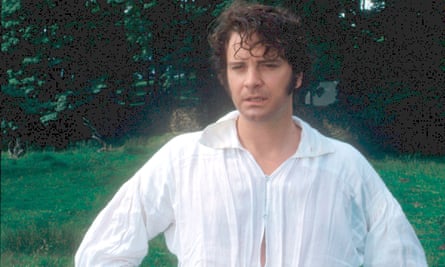
Davies, a successful and sought-after TV adapter of great novels, has previous in sexing up the classics. You’ll look in vain in Austen’s Pride and Prejudice for the scene Davies wrote for the 1995 BBC adaptation in which Mr Darcy emerges from his lake, shirt clinging to his embonpoint, making Elizabeth Bennet come over all unnecessary on Pemberley’s terrace. Nor will you find reference to a lecherous bulldog in Pasternak’s Doctor Zhivago to justify Davies’s scene in his 2002 adaptation. “In the scene I’ve written he’s excited by the sounds and smells of sex coming from the other side of the door,” Davies said at the time. “Then I wrote this stage direction that the dog should turn round and look at Lara with this lecherous grin.” Pity the casting director: how many bulldogs can perform lecherous grins on demand?
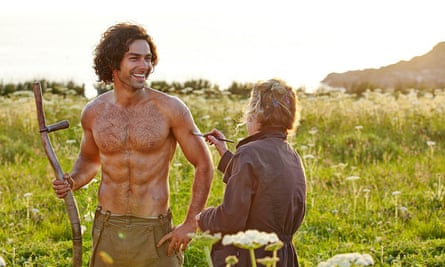
But the introduction of a lecherously grinning dog didn’t cause the most upset over Davies’ adaptation of Doctor Zhivago. The Pasternak family was also unhappy because, as is the case with his treatment of War and Peace, Davies included a sex scene only alluded to in the novel – featuring Zhivago’s rival, Kormarovsky, played by Sam Neil, and the heroine Lara, played by Keira Knightley.
However in all the above cases, it can be argued that Davies was faithful to the spirit, if not letters, of the novels. Similarly, the scything community may have seethed at how Aidan Turner’s Ross Poldark mowed a hay field half naked earlier this year, but that doesn’t mean the BBC adaptation misrepresented the character’s hunky aura in Winston Graham’s books. Equally, there may have been no muppets in Dickens, but that doesn’t mean Kermit and Missy Piggy as Bob and Emily Cratchit jettisoned A Christmas Carol’s emotional essence.
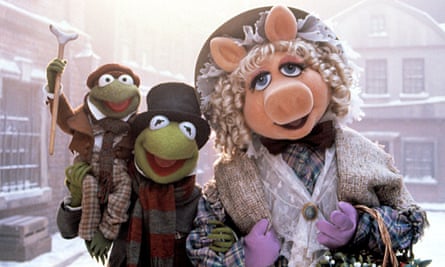
That’s not true of this year’s TV adaption of JK Rowling’s The Casual Vacancy, where screenwriter Sarah Phelps spared Robbie Weedon (spoiler alert!) the death by drowning he suffers in the book. To be fair, Phelps told Rowling she was going to change the story in adapting it for the screen and the novelist tweeted her approval after it was screened, but some fans of the book felt betrayed. For clear-cut betrayal, though, think of what Hitchcock did to Jamaica Inn. Daphne du Maurier hated his 1939 film of her 1936 novel and she may have had a point: Hitchcock erased much of what made the spirited Mary Yellan so adorable and instead unaccountably boosted the story of the comeuppance of Charles Laughton’s evil Sir Humphrey Pengallan. It wasn’t so much an adaptation as a right old savaging.
Stephen King thought Stanley Kubrick had done something similar when he adapted The Shining. The novel’s great theme was how anybody can become evil, but this was lost, he thought, thanks to Kubrick’s chilly directing style and Jack Nicholson’s clamorously manic, gurning performance. King felt so betrayed by the adaptation that he made a poorly regarded 1997 miniseries to set the record straight. Tolstoy, even if he is turning in his grave right now, doesn’t have that option.
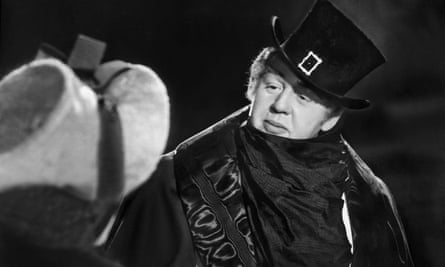
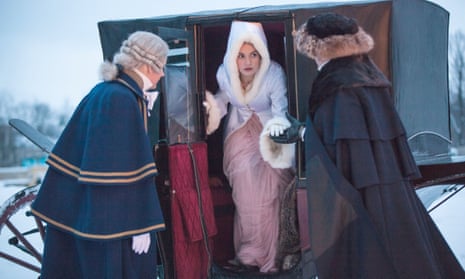
Comments (…)
Sign in or create your Guardian account to join the discussion